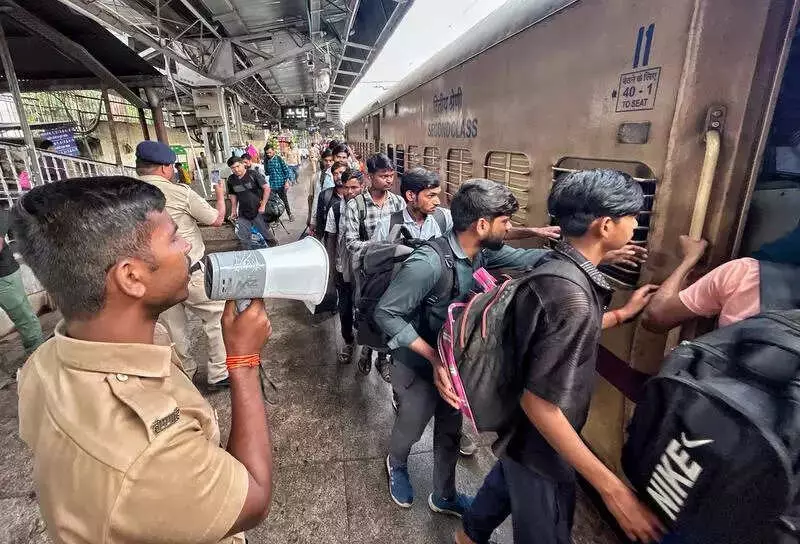
In a remarkable display of social cohesion, Bihar's electoral landscape is witnessing an unprecedented phenomenon where traditional caste and class divisions are dissolving at polling stations, much like the communal harmony witnessed during the revered Chhath Puja celebrations.
The Great Bihar Unification
Across Bihar's diverse political terrain, election booths have transformed into melting pots where Brahmins and Dalits, upper and lower classes, wealthy industrialists and daily wage laborers stand shoulder-to-shoulder, united by their democratic rights. This extraordinary scene mirrors the social unity displayed during Chhath Puja, where devotees from all backgrounds gather at riverbanks in collective worship.
Beyond Traditional Voting Patterns
Political analysts are observing a significant shift in voting behavior that transcends conventional caste-based politics. The traditional vote bank mentality is giving way to issue-based voting, with citizens prioritizing development, employment, and infrastructure over caste affiliations.
Local residents report that election discussions in tea stalls and public spaces now focus more on governance quality and less on caste equations. This represents a fundamental change in Bihar's political consciousness, suggesting a maturation of the democratic process.
Chhath Puja: The Cultural Blueprint
The comparison to Chhath Puja is particularly apt. This ancient festival has long served as Bihar's great social equalizer, where:
- Economic status becomes irrelevant during rituals
- All castes participate in equal measure
- Community bonding takes precedence over social hierarchies
- Shared cultural identity overshadows individual differences
Similarly, the election process is creating spaces where democratic participation temporarily erases social distinctions.
The New Political Reality
This evolving scenario presents both challenges and opportunities for political parties. Traditional strategies based on caste arithmetic are proving increasingly inadequate as voters demonstrate more complex, issue-oriented preferences.
The emergence of this more inclusive political environment suggests that Bihar's democracy is evolving toward greater maturity, potentially setting a precedent for other Indian states grappling with similar social divisions.
As Bihar continues to navigate its political future, the election process itself appears to be catalyzing the very social unity that has long been the promise of Indian democracy, proving that sometimes, the journey matters as much as the destination.






